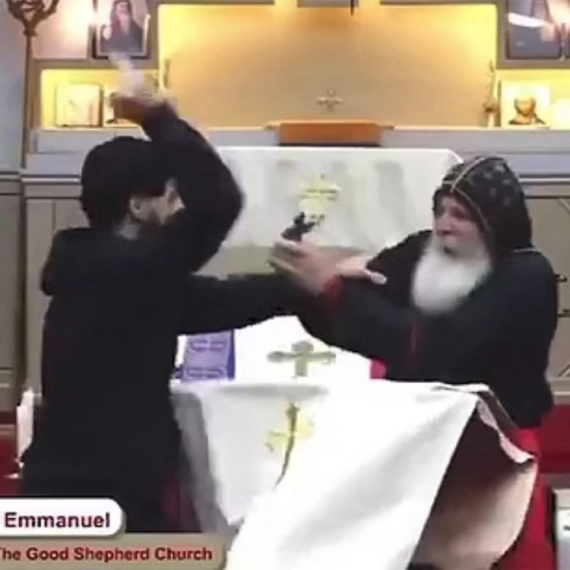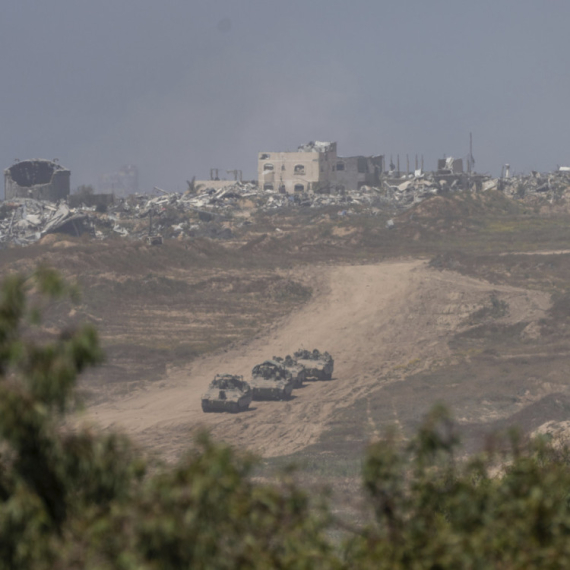Political responsibility for Sarajevo, Tuzla crimes
Military Analyst Aleksandar Radić says both Serb and Bosnian Muslim sides bear responsibility for the 1992 killing of troops in Sarajevo's Dobrovoljačka St.
Thursday, 26.02.2009.
17:28

Military Analyst Aleksandar Radic says both Serb and Bosnian Muslim sides bear responsibility for the 1992 killing of troops in Sarajevo's Dobrovoljacka St. 19 Bosnian nationals have been indicted by the Serbian War Crimes Prosecution for the murder and injuring of scores of Yugoslav People's Army (JNA) soldiers and officers in Sarajevo, in early May 1992, at the very beginning of the war in Bosnia that would rage for the next three years. Political responsibility for Sarajevo, Tuzla crimes Speaking for B92 on Thursday, Radic noted an agreement was reached between the Serb authorities and then Bosnian Muslim leader and Bosnia-Herzegovian President Alija Izetbegovic for peacefully pulling out JNA forces from Bosnian territory. “It would be most interesting to establish political responsibility. That means who were the people who violated the agreement in place at that time between the government, with Belgrade representatives, who were the people who gave the orders. And here names are very clear, meaning members of the high command. And because of that Ejup Ganic is mentioned, and then [Stjepan] Kljujic,” said Radic. “On April 14 [1992] orders were signed for the part of the Bosnian Muslim Territorial Defense controlled by Izetbegovic, telling all available units to block communication needed to move JNA forces out,” he said. “After that, they blocked barracks and attacked JNA members in every location, at every possible opportunity. And on the wave of those events came May 2 and 3 on Dobrovoljacka Street and May 15, the greater tragedy, the attack on the 395th Motor Brigade in Tuzla, while it was withdrawing,” Radic said, of the case known as the Tuzla Column. “I think questions should have been asked in the past of the political and military, the professional responsibility for why that happened, since above all it’s a question of military units, it’s not civilians in question, who were victims of this surprising attack, but people who should have defended themselves in this situations,” he said. In the attacks of May 2-3, 1992, according to information from the Public Center for Security in East Sarajevo, 42 JNA soldiers were killed and 73 wounded, while another 215 were taken prisoner.
Political responsibility for Sarajevo, Tuzla crimes
Speaking for B92 on Thursday, Radić noted an agreement was reached between the Serb authorities and then Bosnian Muslim leader and Bosnia-Herzegovian President Alija Izetbegović for peacefully pulling out JNA forces from Bosnian territory.“It would be most interesting to establish political responsibility. That means who were the people who violated the agreement in place at that time between the government, with Belgrade representatives, who were the people who gave the orders. And here names are very clear, meaning members of the high command. And because of that Ejup Ganić is mentioned, and then [Stjepan] Kljujić,” said Radić.
“On April 14 [1992] orders were signed for the part of the Bosnian Muslim Territorial Defense controlled by Izetbegović, telling all available units to block communication needed to move JNA forces out,” he said.
“After that, they blocked barracks and attacked JNA members in every location, at every possible opportunity. And on the wave of those events came May 2 and 3 on Dobrovoljačka Street and May 15, the greater tragedy, the attack on the 395th Motor Brigade in Tuzla, while it was withdrawing,” Radić said, of the case known as the Tuzla Column.
“I think questions should have been asked in the past of the political and military, the professional responsibility for why that happened, since above all it’s a question of military units, it’s not civilians in question, who were victims of this surprising attack, but people who should have defended themselves in this situations,” he said.
In the attacks of May 2-3, 1992, according to information from the Public Center for Security in East Sarajevo, 42 JNA soldiers were killed and 73 wounded, while another 215 were taken prisoner.





























Komentari 3
Pogledaj komentare